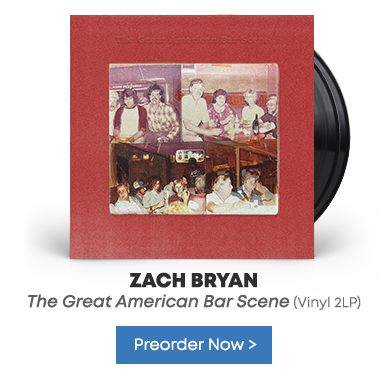Last night I read a great article in The Atlantic written by Dave Grohl of Nirvana and Foo Fighters fame. He laments the loss of live music we are currently experiencing. But he is looking forward to the days and nights we can all be together again enjoying the live music we all crave. He eloquently summarizes the essence of the rock concert experience, and the longing we have as human beings to share those experiences with others. I for one, cannot wait until I can spend more evenings in concert halls and clubs, just to be transported to a world created by the true artists that touch my soul. Here is a bit of Grohl's essay:
"In today's world of fear and unease and social distancing, it's hard to imagine sharing experiences like these ever again. I don't know when it will be safe to return to singing arm in arm at the top of our lungs, hearts racing, bodies moving, souls bursting with life. But I do know that we will do it again, because we have to. It's not a choice. We're human. We need moments that reassure us that we are not alone. That we are understood. That we are imperfect. And, most important, that we need each other."
This brings me to today's guest contributor, Greg Cahill. A fantastic writer and long-time contributor to The Absolute Sound, Greg has reviewed many incredible titles. He has been writing about music most of his life, and also was the editor of Acoustic Guitar magazine. He's a California native and a great guy. I hope you enjoy his fascinating story about a famous Northern California club.
Today's Special Guest Contribution: Live Shows at Sweetwater
By Greg Cahill, Veteran Music Journalist
The COVID-19 lockdown – and its predicted long-term impact on live shows, music venues big and small, and performers' livelihoods – led me to reminiscence about just how magical a concert can be. The original Sweetwater Saloon, located in Mill Valley, California, was a regular hangout for me as a music reviewer – and music lover. The club closed in 2007 after a nearly 40-year run, only to reopen a couple of blocks away under the partial ownership of Grateful Dead guitarist Bob Weir.
It was the biggest little roadhouse west of Texas. I branded Sweetwater Saloon with that sobriquet after then-owner Jeanie Patterson – a vivacious redhead and single mom who put her heart and soul into the rustic, barn-wood-paneled place dominated by a full bar and an iconic toilet-seat guitar that hung over the stage – asked me to contribute a quote to a program note for a tribute to the legendary Mill Valley nightclub.
My statement wasn't hype. For nearly a decade, I enjoyed an (almost) all-access pass to this little room with the big reputation (I once walked in on Etta James in the dressing room while she was clad only in her sweaty slip). In the 80s, the Times of London hailed it as one of the best nightclubs in America. BBC-TV taped a blues special, featuring John Lee Hooker, Bonnie Raitt, and Ry Cooder, there in 1992. Sweetwater survived cranky neighbors, fiscal crises, and changing times before the landlord decided to remodel the aging building in 2007 and turn it into a women's clothing boutique.
The roster of artists that crowded the club's little stage read like a Who's Who of Roots and Rock Music: Hooker, Raitt, Cooder, Van Morrison, Big Mama Thornton, Carlos Santana, Mimi Fariña, Weir, Johnnie Johnson, Huey Lewis and the News, Aaron Neville, John Hiatt, Elizabeth Cotten, Robert Cray, Ramblin' Jack Elliott, Rory Block, Odetta, and Townes Van Zandt, to name just a few.
At Sweetwater, the once-in-a-lifetime show was commonplace. Squished down behind the stage, in an attempt to be unobtrusive, I once sat with my right ear no more than a foot away from the back of Santana's blistering Fender amp. Gregg Allman surprised a sparse Monday night audience with an open-mic performance. Train once stopped by to warm up for one of its tours. After headlining the Oakland Arena during its sold-out Money for Nothing tour, Dire Straits dropped by Sweetwater unannounced, with two tour buses and an entourage of 70 (the tavern only held 90 people) to catch Dire Straits guitarist Mark Knopfler's hero, J. J. Cale, that night's headliner. Knopfler, who had never seen Cale before, joined him onstage while the rest of the entourage huddled in the basement.
In 1989, Elvis Costello teamed up with Jerry Garcia and other rock luminaries for a night of unforgettable acoustic performances. And when film star Dennis Quaid, fresh from his leading role in The Big Easy, started to moonlight as a blues singer, he picked Sweetwater to hone his chops (with Bob Dylan's band in tow). Other Hollywood stars living out their rock 'n' roll fantasies at Sweetwater included Harry Dean Stanton and Katey Sagal. For years, the club served as a way station for an Austin, Texas/New Orleans/Bay Area axis that drew the Tailgators, Boozoo Chavis, Zachary Richard, Kim Wilson of the Fabulous Thunderbirds, and many other Lone Star State and Louisiana bayou greats.
But the real action was in the basement, with its low ceiling, exposed water pipes, and extensive gallery of autographed photos. Down there, the poker table, with its well-worn green-felt covering, served as the focal point for stars and backstage crashers alike. Entertainers and guests often gathered around for a low-stakes game of cards and a few drinks.
None exhibited more enthusiasm for the game than country-soul singer Delbert McClinton and his band, which at the time included keyboardist Mike Duke, formerly of Wet Willie. McClinton's band was flat-out poker-obsessed. They would play cards on the tour bus, load in their equipment, run through a quick sound check, and then retire to the poker table. Hours later, the musicians would pause just long enough to hop onstage, only to return to the table right after the last encore.
But the peak experience in my 30-plus years as a music journalist – hell, in a lifetime as a music fan – came in the mid-80s after catching singer, bassist, and songwriter Willie Dixon at Sweetwater on a rainy Saturday night. I had long cherished Dixon, who penned such blues standards as "Spoonful" and "I Can't Quit You Baby." His show was pure bliss. Afterward, his band straggled downstairs and settled around the poker table to play cards, scarf stacks of spicy chicken wings, and share a few laughs. I hung out with Dixon and Patterson, listening as they told war stories about the fickle music business.
Finally, at four o'clock in the morning, an exhausted Dixon announced he was going to the bus, parked down the street from the club, hoping the band would get the hint and follow him. His mates sat riveted to the poker table, ignoring their tall, rotund boss. Dixon started walking. I tagged along. Grabbing his old leather satchel, I headed up the rickety stairs behind this towering blues giant.
Outside the morning air was crisp and cool, the town dead quiet, the pavement shimmering after a light rain. Overhead, the clouds broke behind the bare trees to reveal a full moon. It was just me and Dixon, his broad Stetson shading his eyes as we strolled down the narrow brick sidewalk. And then he started to sing – a deep, low blues moan. For the next three minutes, time stood still – like in a dream – and I was transported to blues heaven.
It's never gotten any better than that, and I know it never will.
Recommended Listening: Muddy Waters Folk Singer
An intimate acoustic studio performance recorded in 1964 and featuring Waters (vocals, guitar), Willie Dixon (bass), Buddy Guy (guitar), James Cotton (harmonica), and Clifton James (drums).
12th May 2020




































